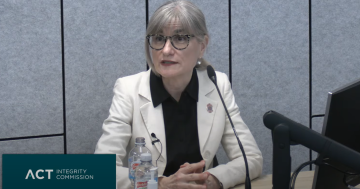 The Australian Law Reform Commission is calling for a new Commission to be established to support public confidence in impartiality among the judiciary.
The Australian Law Reform Commission is calling for a new Commission to be established to support public confidence in impartiality among the judiciary.
President of the ALRC, Justice Sarah Derrington said the report Without Fear or Favour: Judicial Impartiality and the Law on Bias was the first comprehensive review in Australia of laws related to impartiality among the judiciary and potential bias in the Commonwealth courts.
Justice Derrington said the report found that public confidence in Australian judges was generally high, and that judges took their oath of office to administer impartial justice seriously.
“More could be done to increase certainty and visibility of existing procedures relating to bias, to understand and respond to litigants’ experiences and concerns, and to address the potential for institutional biases,” Justice Derrington said.
She said the report made 14 recommendations to promote and protect judicial impartiality and public confidence in the Commonwealth.
“The recommendations support transparency, equality, integrity, and fairness to provide a robust framework for judicial impartiality and public confidence in it,” Justice Derrington said.
Senior Legal Officers at the ALRC, William Isdale and Sarah Fulton said the Commission concluded that the law itself did not need to change.
“However, it agreed with stakeholders that a number of reforms should be made to clarify and improve the procedural and institutional structures that support judicial impartiality and public confidence in it,” Dr Isdale and Ms Fulton said.
“The ALRC found there was a lack of clarity surrounding the procedures for the disqualification of judges, and differences in how courts approach applications for disqualification,” they said.
“The ALRC also recommended the Australian Government should establish a federal judicial commission, with complaints-handling and educative functions.”
The Senior Legal Officers said the ALRC concluded that, given the bias rule’s inherent limitations, a body independent from the courts (though ultimately under judicial control) was a necessary complement to address issues of apprehended bias that had potential to undermine public confidence in the judiciary.
“While the ALRC has not proposed a specific model, such a body could provide a number of benefits,” they said.
“For instance, in comparison to an appeal process, which may correct legal error in specific cases, a judicial commission can support judicial impartiality and the appearance of it going forward, including by helping to address underlying issues.”
Dr Isdale and Ms Fulton said the ALRC had also made a suite of recommendations addressing judicial appointments, judicial education, ethical guidance, the collection of feedback and data, and accessible information about the courts.
The ALRC’s 614-page Report can be accessed at this PS News link.









